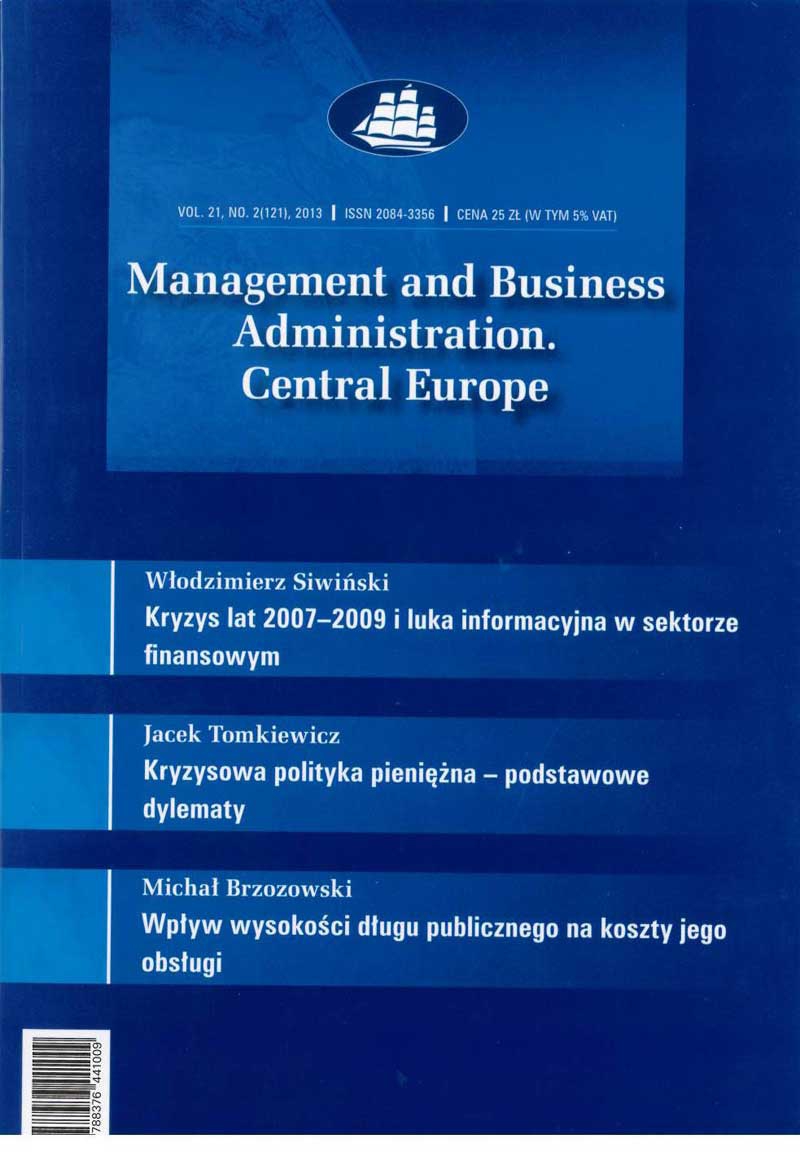Analysis of Ineffectiveness Arising in “Investor-government” Relations
Analysis of Ineffectiveness Arising in “Investor-government” Relations
Author(s): Dmytro Sokolovskyi, Olena SokolovskaSubject(s): Economy
Published by: Akademia Leona Koźmińskiego
Keywords: investors; government; economic behavior; modeling; game theory; Nash equilibrium; Pareto-optimality
Summary/Abstract: Purpose: This article deals with the problem of forming Pareto non-optimal norms of mutual behavior of investors and government in the process of decision-making related to financing designed to reduce risks in investment activity. Methodology: Considering the interdependent type (nature) of interactions between related parties, game theory tools were used to model such interactions. Much attention was directed to search for� parameters of interaction leading to certain Nash equilibriums in pure strategies. The formal results obtained with the model were verified by statistical analysis. Findings: Analysis showed that the rational behavior of related parties can lead to unexpected results. Powerful investors will aim to work in socially-oriented economies, whereas primarily small investors will operate in most liberal economies with a�minimum tax burden but with a�higher level of risk. As for governments’ behaviors, the images are the same: small economies tend to liberalize their tax systems and to secure investment faster than powerful ones. Empirical verification based on statistical data of groups of countries generally confirmed the conclusions. These formal and logical conclusions were from statistical analysis of 124 countries divided into 5 groups: OECD countries, post-socialist countries, Latin American countries, APAC countries and ACP countries. Provided that the more powerful ones are covered economies, there was stronger interdependence between the size of economies and tax burden and also between total investment and tax burden, where this dependence is positive. Originality: The results obtained used Nash equilibriums in pure strategies as models of behavioral norms to define behaviors of related parties and also to explain assumptions concerning the behaviors of investors and government.
Journal: Management and Business Administration. Central Europe
- Issue Year: 2015
- Issue No: 3
- Page Range: 47-70
- Page Count: 24

